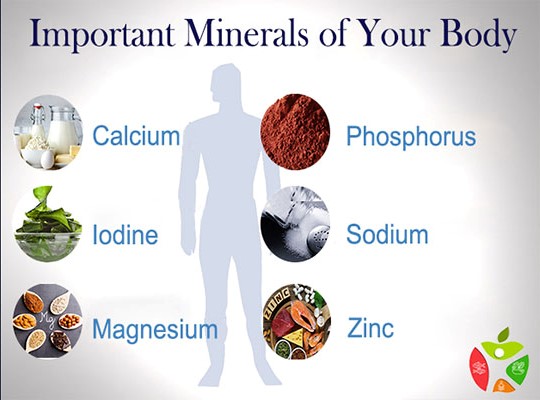Introduction
In the pursuit of a healthy lifestyle, many individuals often focus on aspects such as diet, exercise, and sleep and they forget the importance of Minerals. While these are undoubtedly important, one essential component that often goes overlooked is the role of these in maintaining optimal health and fitness. These micronutrients play a crucial role in various bodily functions, and their absence can lead to a range of health issues. In this article, we’ll hunt through into the significance of minerals, their diverse functions, and why they deserve more attention in the realm of health and fitness.

The Role of Minerals in the Body
Calcium: More Than Just Strong Bones
Calcium isn’t just responsible for building strong bones and teeth; it also plays a vital role in muscle contraction, nerve transmission, and blood clotting. A deficiency in calcium can lead to weakened bones and an increased risk of fractures, but it can also affect overall muscle function and cardiovascular health.
Magnesium: The Unsung Hero
Magnesium is involved in over 300 enzymatic reactions in the body. It supports energy production, muscle and nerve function, and helps regulate blood pressure. Despite its importance, magnesium deficiency is common, often leading to muscle cramps, fatigue, and even heart arrhythmias.
Iron: Oxygen Transport and Beyond
Iron is essential for the production of hemoglobin, the molecule responsible for transporting oxygen in the blood. Without adequate iron intake, fatigue and anemia can set in. Additionally, iron is involved in immune function and cognitive development.

The Neglected Minerals
Zinc: Immunity and Beyond
Zinc is a trace mineral that is crucial in immune function, wound healing, and protein synthesis. Zinc is often overshadowed by other nutrients, but its impact on overall health and fitness cannot be underestimated.
Selenium: Antioxidant Powerhouse
Selenium acts as a powerful antioxidant, protecting cells from oxidative stress and supporting a healthy immune system. It’s particularly important for thyroid function and maintaining a balanced metabolism.
The Impact on Health and Fitness
Performance Optimization
Minerals are essential for athletes and active individuals looking to optimize their performance. From maintaining electrolyte balance to supporting muscle contractions, these micronutrients can make a significant difference in overall athletic abilities.
Recovery and Repair
After intense workouts, the body requires adequate nutrition intake for optimal recovery and tissue repair. Calcium, magnesium, and zinc are especially crucial for muscle repair and growth.
The Overlooked Connection: Mental Health
Mood Regulation
Certain minerals, such as magnesium and zinc, are linked to mood regulation and mental well-being. A deficiency in these minerals can contribute to feelings of anxiety and depression.
Cognitive Function
Iron and zinc are essential for cognitive function and memory. They support neurotransmitter synthesis and communication within the brain.
Bringing Minerals Back to the Spotlight
In the pursuit of a holistic approach to health and fitness, it’s crucial to pay attention to the role of minerals. While macronutrients like carbohydrates, proteins, and fats often take center stage, minerals play a silent but significant role in ensuring the body’s overall well-being.
Conclusion
Minerals are the unsung heroes of the health and fitness world. From supporting bone health to regulating mood and cognitive function, their importance cannot be overstated. As we strive for optimal health, let’s not forget to include a diverse array of minerals in our diet. By giving these micronutrients the attention they deserve, we can unlock their full potential in enhancing our overall well-being.
FAQs
Why are minerals important for health and fitness?
Minerals are essential for various bodily functions, including muscle contractions, immune system support, and even mood regulation. They are integral to overall health and fitness
How can I ensure I’m getting enough minerals in my diet?
A balanced and varied diet that includes a wide range of whole foods, such as fruits, vegetables, nuts, seeds, and lean proteins, can help you meet your mineral needs.
Can mineral deficiencies be harmful?
Yes, mineral deficiencies can lead to a range of health issues, including weakened bones, fatigue, immune system dysfunction, and mood disorders.
Are mineral supplements necessary?
While a balanced diet is the best way to obtain nutrients, supplements can be considered if you have specific deficiencies. It’s advisable to consult a healthcare professional before starting any supplementation.
How do minerals interact with other nutrients in the body?
Nutrients often work in tandem with vitamins and other nutrients to support various bodily functions. Their interactions are complex and interdependent, highlighting the importance of a well-rounded diet.

